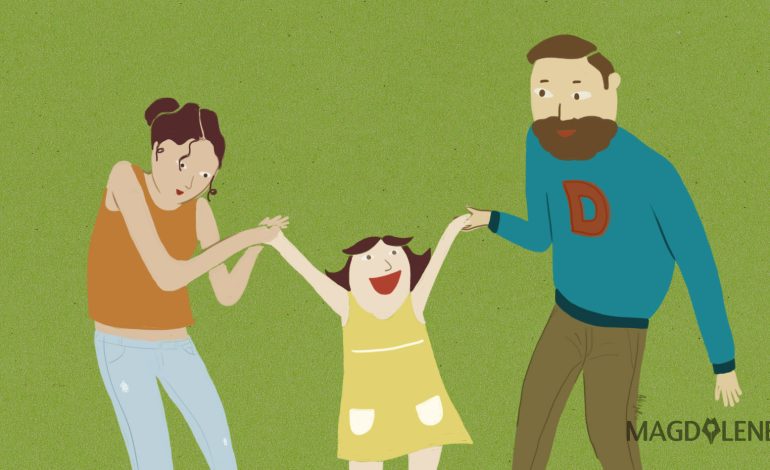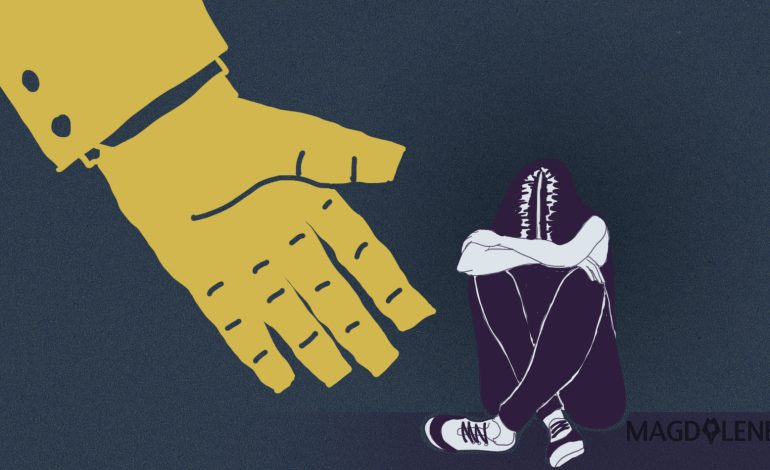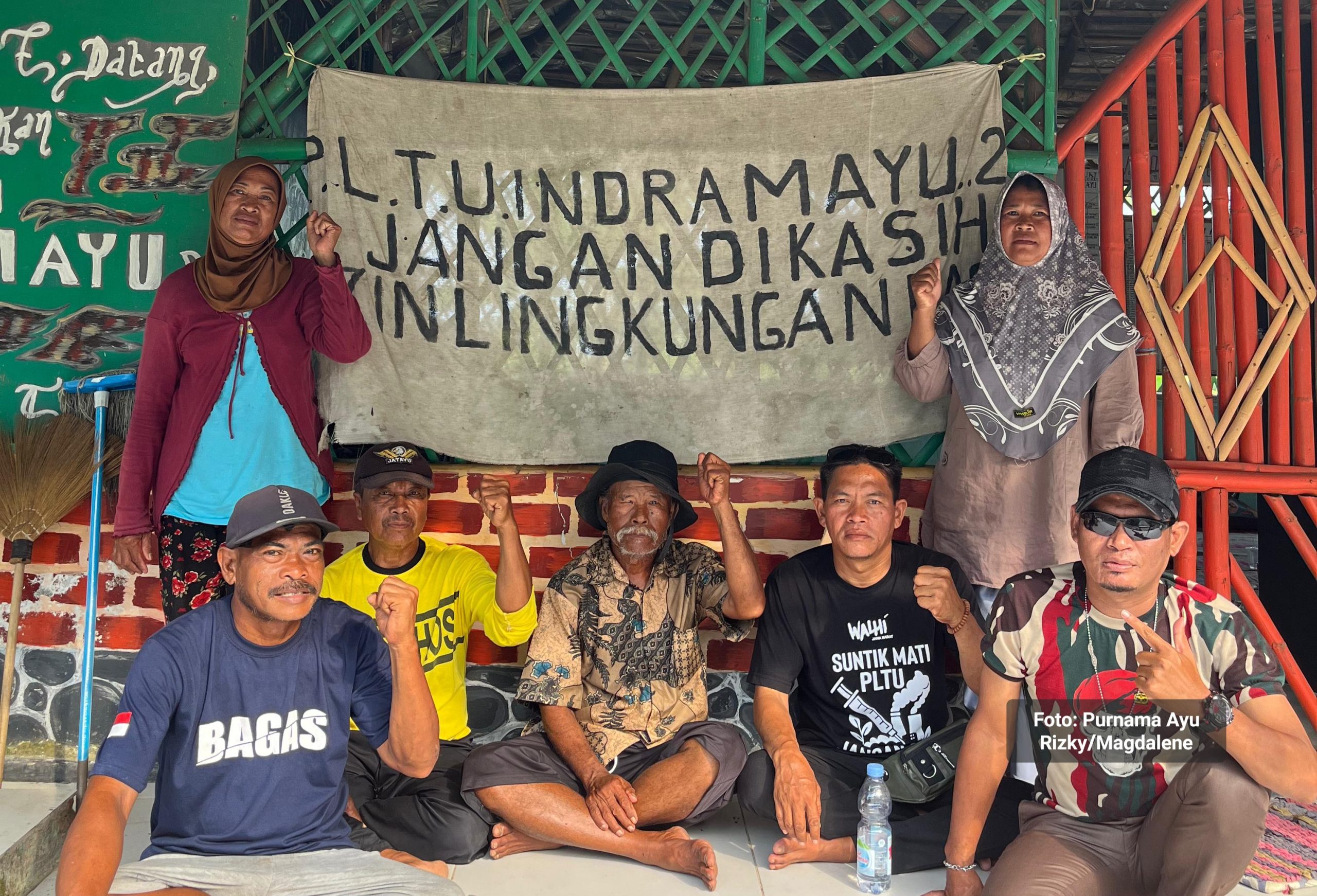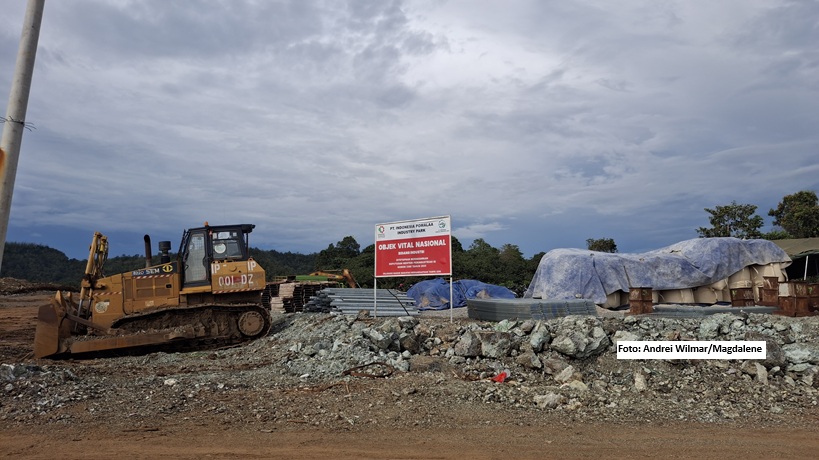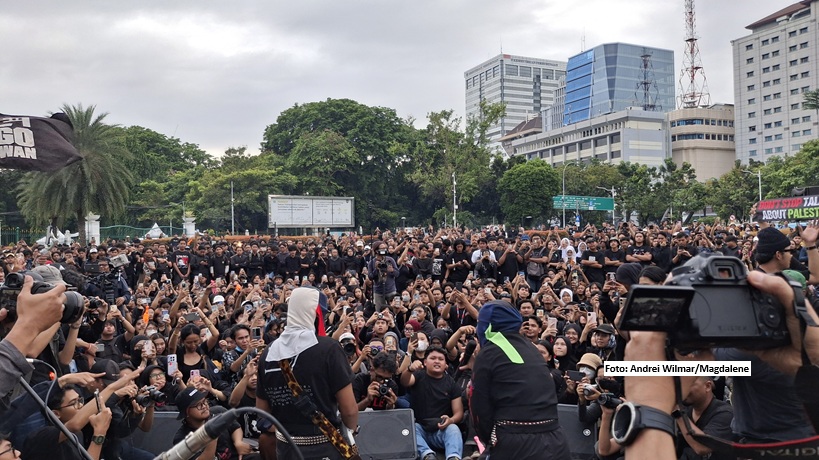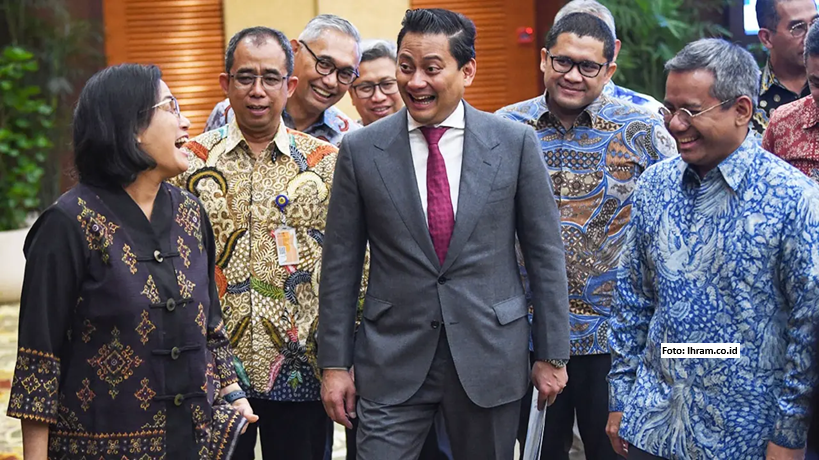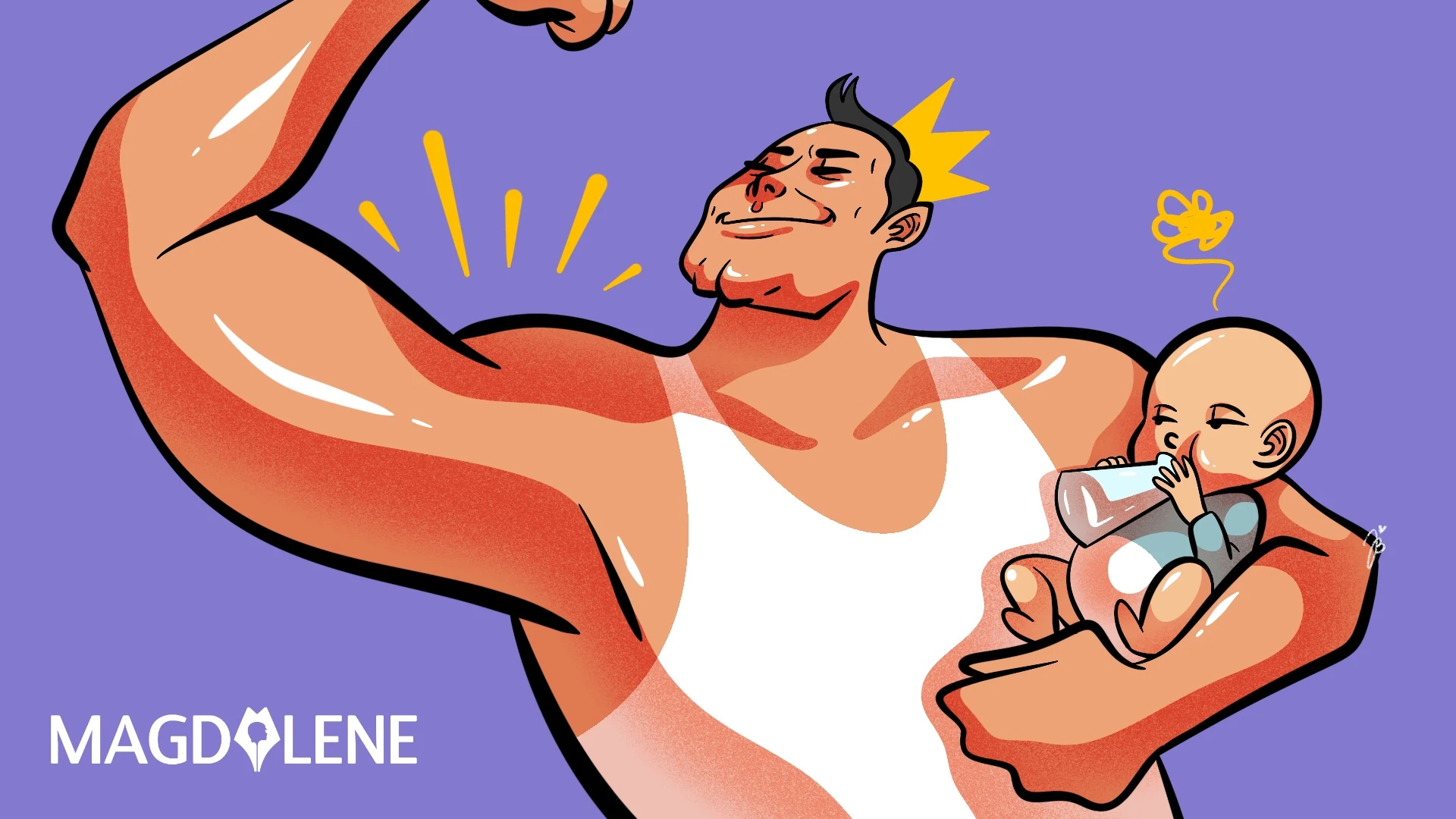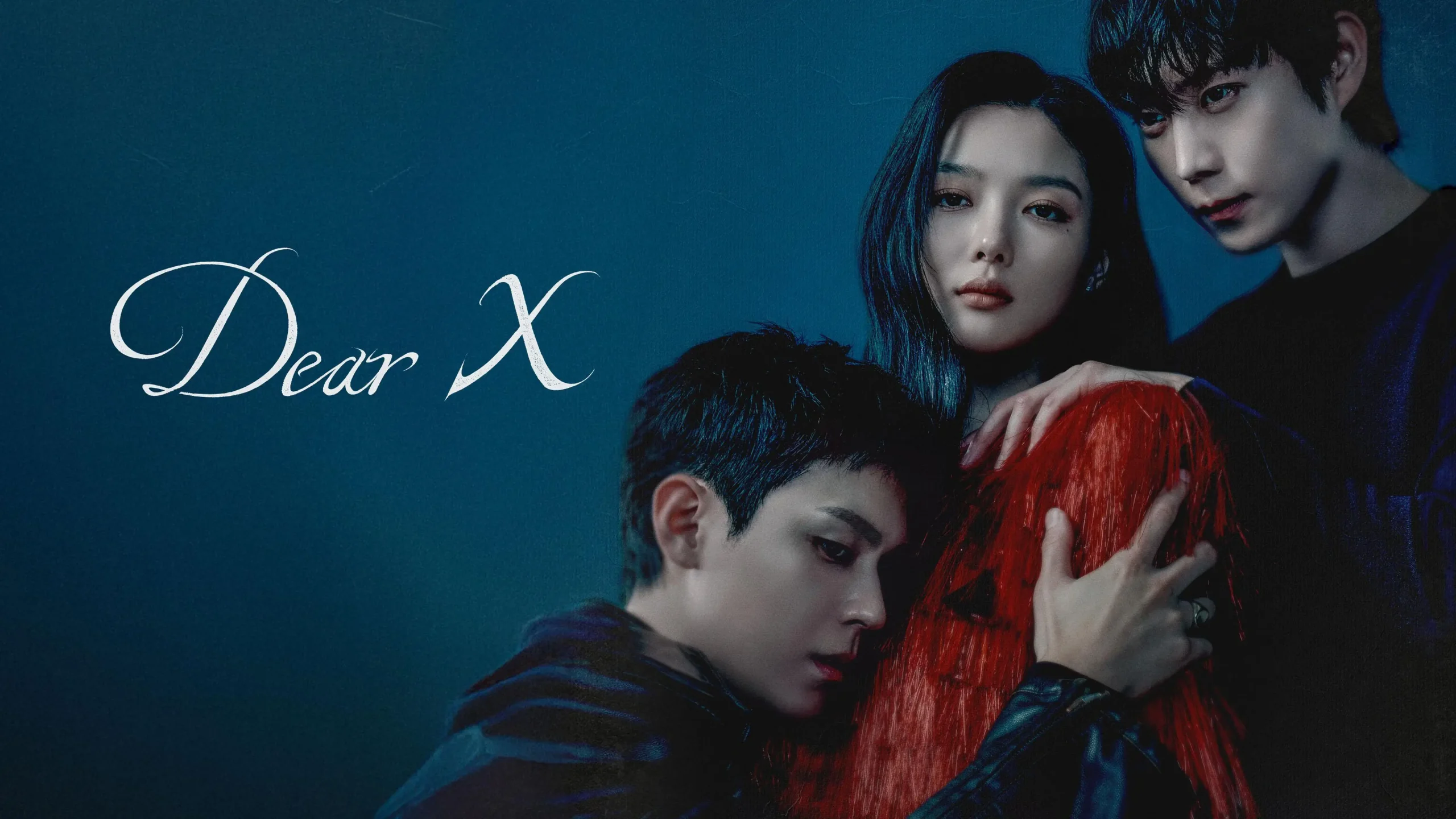Facing Hostility After Removing My Headscarf
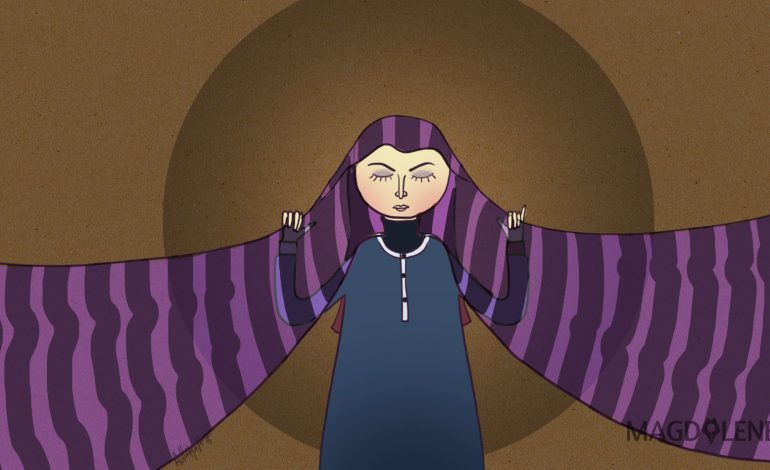
I’ve observed here in Indonesia that the majority of people tend to celebrate women’s decision to wear a headscarf than their decision to take them off. But if only they realize that every decision often came after a long and very difficult personal struggle.
I come from a strictly religious Muslim family. My mother became increasingly religious after her divorce 20 years ago. Soon after, she decided to wear a veil and joined a particular (and rather) exclusive Islamic community, and since then our little family has been governed differently. Religion and religious practice became a currency. It is not entirely bad, but most of the time it knows only obedience; there is no dialogue over differences.
I had worn headscarf for 13 years before I decided to remove it in 2013. From the beginning there were no questions, options or discussions allowed on the rule: “Every girl, before entering puberty, has to cover her aurat”. The consequence of refusing it was real, ranging from verbal and non-verbal punishment to the possibility of getting kicked out of the family.
For 10 years I was not even brave enough to question silently in my head. Living under the same roof with the first and foremost significant person in my life, an authoritative figure, and a single parent forced me to repress what I felt and thought on matters that were important to me, as I went through the process of growing up, building an identity, and relating myself to the world. It changed slowly after I graduated from university, became financially independent (I support my family), and moved out of my mom’s house.
I began to feel disturbed, not because I felt I had made the wrong representation of myself to people in the context of religion, and I felt I was not worth the “honor” of wearing veil. I was conflicted after years of not questioning the simple fact that I was never given a voice over the decision to cover a part of my body – a decision that defined my sense of self and built a significant symbol and representation of myself to others. There I was, looking at the options I had never been given before.
But the moments of going to a public space without my veil were not easy.
On the first day of “change” I went to pick up my laundry and the woman who worked there stared and remarked, “Pakai kerudung cantik loh….” (You looked pretty with veil). On another day she asked if I would put my veil back some time in the near future. I replied only with a smile.
The more crass and cruel responses came later.
I went to a friend’s birthday party wearing a black dress with long sleeves and low-heels. The dress came from my old wardrobe. Clothes were not my priority in those first months of my work life. I walked in and sensed people staring at me. I tried to enjoy the party until my friend, walking towards my table, pointing her finger at my face, spoke casually in a loud voice, “Why did you take off your headscarf?”
She did not even bother to sit down and wait for my response and continued to walk towards the food. But she left me there, with everyone turning their head and waiting for words coming out on my mouth. I remained silent.
She came back with a full plate and a smile on her face.
“Why?” She repeated the question.
“Why did you ask?” I asked her back.
She rolled her eyes and said, “Because I am your friend and I care about my friend.”
I was perplexed, because to the best of my memories I’d only talked to her less than ten times during the four years of my university life. And there were no deep conversations or shared experiences, only appropriate greetings. Yet, she claimed to have some concerns over my personal life choice.
Other time another friend from a different circle shouted for everyone to hear, “Now she is a liberal, doing drugs and free sex.” The crowd laughed.
An old friend from high school sent a couple of messages after seeing my picture posted by a friend on social media. He said he was concerned if I experienced something terrible recently and it resulted in my decision to remove my veil.
“It is not a solution. It is an escape,” he said.
And there were many people sending messages like this through instant messaging and social media. Some were not brave enough and chose to gossip behind my back.
I realized my personal decision was not welcomed. It was questioned and judged. Most of the people perceived it in a negative manner. They spared no room to sympathetically ask and listen in order to understand my choice. An irony, considering that they seemed to believe that women who take off their veil are open to be discussed.
I became very selective on the occasions and places to go without my veil, fearing more insults and judgments. I reconsider my circle of friends. There were very few friends I trusted and felt comfortable to hang out with. Yet, sometimes, I was not able to escape from people’s scrutiny, even those I thought would be more thoughtful about the issue. They are a group of people proclaiming to be “pluralist and tolerant” people, activists.
“She has been liberated,” they would say, or: “You look better this way. You look more human now.”
Honestly, I was shocked and upset. Not only because that was an awful thing to say. But, more importantly, it made me question if they view every single veiled woman as less beautiful and having less value than other humans.
I understand that a veil is seen as a symbol of oppression and in some cases it’s true. I have seen it myself. But I would not apply this to every woman whose head is covered, and I don’t believe that they need to be freed by removing their veil. That would only be another oppression.
Having “experimented” going bare head among several circles of people, I decided to hide my change from my family for over a year. Eventually I revealed the truth to them because I simply wanted to live an honest life.
My family’s reactions were hysterical. My mother dropped the Quran on my lap. She insisted that I opened and read loudly a verse from Al-Ahzab: 59, which is widely believed to be the scriptural basis of requirement for women to cover their head.
My brother in law repeatedly said, “We are truly disappointed in you.”
Whatever I said they refused to listen.
In a muted tone I said: “I am supposed to be the person who feels a great sadness and regret because after thirteen years of studying Quran intensively in this community, I faced the question of whether I believe or not in the existence of God.”
I wished no celebration, nor even acceptance. From the moment I came out with my choice, I knew I would be in a constant fight. I will have to explain myself over and over again. Sometimes it’s too much and I get tired and defensive. Sometimes I choose to stay silent.
But it’s the rare kindness that I remember. A friend of a friend sent his regards and said, “I feel happy for her.” I cried when I heard it. His words gave me the warmth I needed, after so many cold words and inconsiderate treatments by many. My body became less tense.
Some ask, my mother included: “When will you wear the headscarf back?”
My answer remains the same to this day: I do not know. I may wear it again in the future, or I may not. Faith is a life-long journey. It is not a static and linear process.
I respect people’s beliefs and the way they practice them. I understand that it’s inextricably related to experiences every human deal on a daily basis. Religion, belief, or faith serves different purposes for everyone. And it is completely fine with me.
Annisa currently lives in the capital of Indonesia, Jakarta, and she keeps trying to maintain a peaceful mind amid loud people and noises from such highly urban environment.

